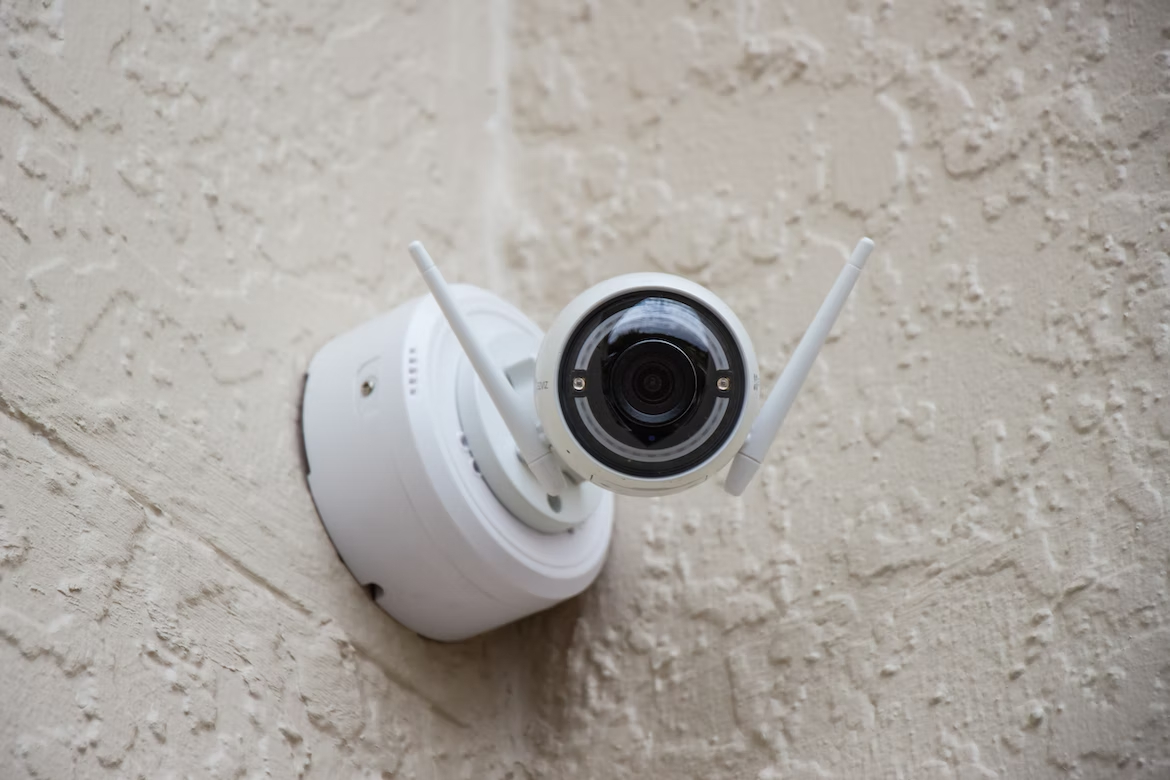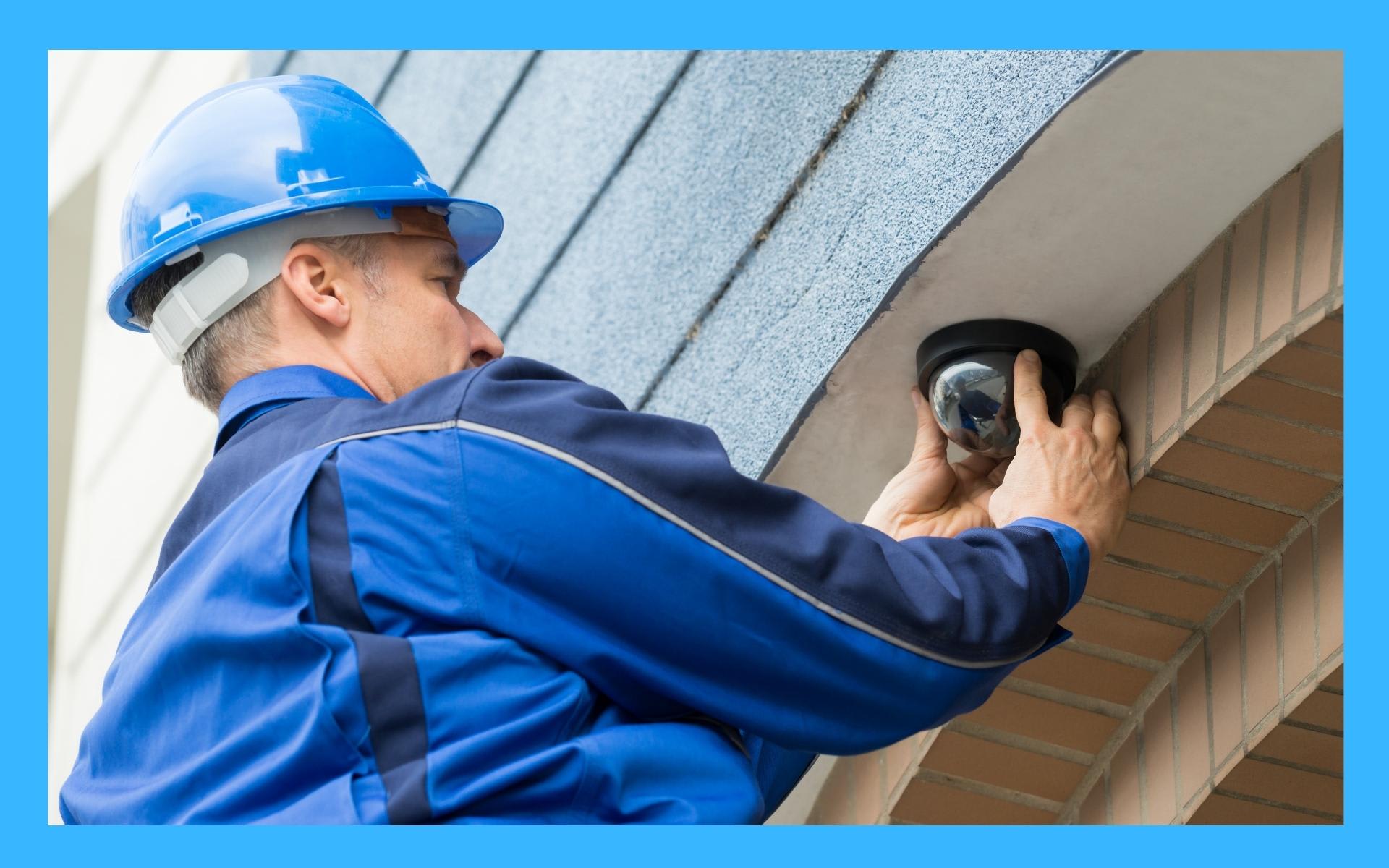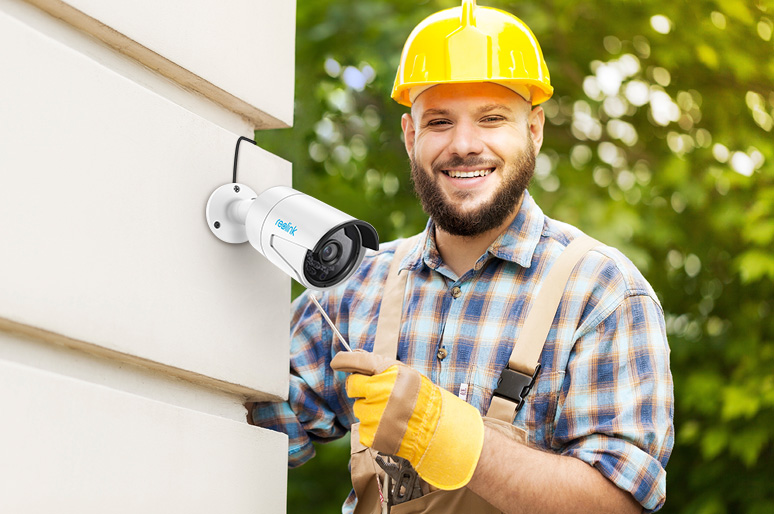How much to install security cameras? It’s a question that pops up for homeowners and business owners alike, as they seek to bolster their safety and security. The answer, however, isn’t a simple one-size-fits-all figure. A myriad of factors come into play, from the type of cameras you choose to the complexity of installation. Let’s delve into the world of security camera costs, unraveling the intricacies and empowering you to make informed decisions.
From the initial purchase to the ongoing maintenance, we’ll explore all aspects of the financial landscape. We’ll guide you through the various cost drivers, helping you understand how to balance your budget with your security needs. Whether you’re looking for a basic setup or a sophisticated system, this guide will equip you with the knowledge to navigate the process with confidence.
Factors Affecting Security Camera Installation Costs
The cost of installing security cameras is influenced by a multitude of factors, making it essential to understand these variables to create a realistic budget.
The Number of Cameras
The number of cameras directly impacts the installation cost. Naturally, more cameras require more equipment, labor, and materials, leading to a higher overall price. It’s essential to consider the specific security needs and areas that need coverage when determining the optimal number of cameras.
Camera Types and Prices
- Wired cameras: These cameras are typically more affordable than wireless cameras, with prices ranging from $50 to $200 per camera. However, wired cameras require professional installation, which can add to the overall cost.
- Wireless cameras: These cameras offer greater flexibility in placement but come at a higher price, ranging from $100 to $300 per camera. The convenience of wireless connectivity often justifies the additional expense.
- Indoor cameras: Designed for indoor use, these cameras typically have lower resolutions and fewer features than outdoor cameras, making them more affordable, ranging from $30 to $150 per camera.
- Outdoor cameras: Outdoor cameras are built for durability and weather resistance, often featuring higher resolutions and advanced features like night vision and motion detection, making them more expensive, ranging from $50 to $300 per camera.
Camera Resolution, Features, and Brand Reputation
Camera resolution plays a crucial role in image quality and clarity. Higher resolution cameras, such as 4K cameras, offer sharper images and more detail, but they also come at a higher price. Similarly, advanced features like night vision, motion detection, and two-way audio increase the cost of the camera. Brand reputation also affects price, with well-known brands often commanding higher prices for their quality and reliability.
Installation Complexity
The complexity of the installation process significantly impacts the overall cost. Factors like wiring, mounting, and access points influence the time and effort required for installation. For example, installing cameras in a multi-story building with complex wiring systems will be more expensive than installing cameras in a single-story house with simple wiring.
Labor Costs

Labor costs are a significant factor in the overall cost of installing security cameras. These costs can vary depending on factors such as the complexity of the installation, the number of cameras, and the experience level of the installer.
Hourly Rates for Security Camera Installers
Hourly rates for security camera installers can vary widely depending on factors such as location, experience, and the type of installation. It’s important to note that these are just estimates, and actual rates may vary.
- Basic Installation: Installers with limited experience or those working on smaller projects may charge lower hourly rates, typically ranging from $50 to $80 per hour.
- Complex Installations: Installers with specialized skills and experience, such as those working on large commercial projects or installations requiring advanced networking, may charge higher rates, typically ranging from $80 to $150 per hour.
- Location: Installers in urban areas with higher costs of living may charge higher hourly rates than those in rural areas.
Impact of Installation Duration on Labor Costs
The duration of the installation project significantly impacts labor costs. Longer installations naturally result in higher labor costs.
- Simple Installation: A simple installation involving a few cameras and basic wiring might take a few hours, resulting in a relatively low labor cost.
- Complex Installation: A complex installation involving multiple cameras, advanced networking, and custom configurations can take several days or even weeks, significantly increasing labor costs.
Cost Variations Based on Installer Experience and Location
The experience level of the installer and their location play a significant role in determining labor costs.
- Experience Level: More experienced installers with a proven track record and specialized skills typically charge higher hourly rates. This is because they have the expertise to complete installations efficiently and effectively, minimizing potential problems and ensuring a high-quality result.
- Location: Installers in urban areas with higher costs of living tend to charge higher hourly rates than those in rural areas. This reflects the higher cost of living in these areas, including expenses such as rent, utilities, and transportation.
DIY Installation vs. Hiring a Professional
The cost of DIY installation versus hiring a professional is a crucial consideration. While DIY installation can be more affordable upfront, it comes with potential risks and downsides.
- DIY Installation: DIY installation can be significantly cheaper than hiring a professional, especially for basic installations. However, it requires technical knowledge, time, and effort. It also carries the risk of installation errors, which can lead to security vulnerabilities, malfunctions, and potential damage to property.
- Hiring a Professional: Hiring a professional installer offers several advantages, including expertise, experience, and warranty coverage. Professional installers have the knowledge and skills to ensure proper installation, minimizing the risk of errors and maximizing the effectiveness of the security system. They also provide warranty coverage, offering peace of mind in case of malfunctions or defects.
Additional Costs

The initial price quote for security camera installation may not include all the expenses you’ll encounter. Hidden costs can significantly increase the total project cost. Therefore, it’s crucial to factor in these additional expenses to create a realistic budget.
Here are some potential additional costs:
Permits
Permits are required in some areas for security camera installation. These permits are necessary to ensure that the installation complies with local building codes and regulations. The cost of permits can vary depending on the location, the type of installation, and the complexity of the project. For example, if you are installing cameras in a public area or on a commercial property, you may need to obtain a permit from the local government.
Equipment
Besides the cameras themselves, you may need additional equipment for installation, such as:
- Wiring: The cost of wiring can vary depending on the length of the runs, the type of cable used, and the complexity of the installation. For example, if you are installing cameras in a multi-story building, the cost of wiring will be higher than if you are installing cameras in a single-story building.
- Connectors: Connectors are used to connect the cameras to the recording system. The cost of connectors can vary depending on the type of connector used. For example, if you are using a high-quality connector, the cost will be higher than if you are using a standard connector.
- Mounting brackets: Mounting brackets are used to secure the cameras to walls, ceilings, or other surfaces. The cost of mounting brackets can vary depending on the type of bracket used. For example, if you are using a weatherproof bracket, the cost will be higher than if you are using a standard bracket.
Professional Monitoring Services
Professional monitoring services offer round-the-clock surveillance of your security cameras. These services are generally offered by security companies and provide a more comprehensive security solution. They can monitor your cameras for suspicious activity and alert you or the authorities in case of an emergency. The cost of professional monitoring services varies depending on the level of service required and the number of cameras being monitored.
For example, a basic monitoring service that simply alerts you to activity may be less expensive than a service that includes 24/7 monitoring by trained security personnel.
Additional Security Measures
Additional security measures, such as alarms and motion sensors, can enhance your security system’s effectiveness. These measures can provide an extra layer of protection and deter potential intruders. The cost of these additional measures can vary depending on the type of system you choose and the complexity of the installation. For example, a basic alarm system may cost less than a sophisticated system that includes multiple sensors and a remote monitoring service.
Cost-Saving Strategies
Installing security cameras can be a significant investment, but there are ways to reduce the overall cost without compromising security. By carefully considering camera types, negotiating installation prices, and making informed decisions about additional features, you can save money while still achieving your security goals.
Camera Type Costs
Choosing the right camera type is crucial for both security and budget. This table compares the costs of various camera types, highlighting cost-effective options:| Camera Type | Average Cost per Camera | Cost-Effectiveness ||—|—|—|| Wired IP Cameras | $100 – $200 | High || Wireless IP Cameras | $150 – $300 | Moderate || Analog CCTV Cameras | $50 – $100 | High || PTZ Cameras | $200 – $500 | Moderate || 4K Cameras | $250 – $500 | Low |Wired IP cameras are generally the most cost-effective option, offering high-quality video and reliable performance at a reasonable price.
Analog CCTV cameras are also a budget-friendly choice, particularly for basic surveillance needs. While wireless IP cameras offer flexibility, they tend to be more expensive than wired options. PTZ cameras, which allow for remote pan, tilt, and zoom, are more expensive but provide enhanced monitoring capabilities. 4K cameras offer the highest image resolution but come with a significant price premium.
Negotiating Installation Prices
Negotiating installation prices can save you a substantial amount of money. Here are some tips for securing discounts:
- Get multiple quotes: Contact several security camera installers and compare their prices and services. This allows you to identify the best value for your needs.
- Negotiate package deals: Ask about bundled packages that include cameras, installation, and monitoring services. These packages often offer discounts compared to purchasing individual components.
- Consider DIY installation: If you have some technical skills, consider installing the cameras yourself. This can significantly reduce labor costs, but it’s important to assess your capabilities and the complexity of the installation before making a decision.
- Inquire about financing options: Some installers offer financing plans that allow you to spread the cost of the installation over time.
- Be flexible with installation timing: Installing cameras during off-peak seasons or weekdays may result in lower labor costs.
Estimating Installation Costs, How much to install security cameras
Estimating installation costs requires considering several factors, including:
- Number of cameras: The more cameras you install, the higher the overall cost.
- Camera type: Different camera types have varying costs, as discussed earlier.
- Installation complexity: Installations involving difficult wiring, extensive cabling, or special mounting requirements will be more expensive.
- Additional features: Features such as night vision, motion detection, and cloud storage can add to the overall cost.
- Location: Installation costs may vary depending on your location and the availability of qualified installers.
To estimate the cost of your security camera installation, you can use the following formula:
Estimated Installation Cost = (Number of Cameras x Average Cost per Camera) + Labor Costs + Additional Costs
For example, if you plan to install 4 wired IP cameras with an average cost of $150 each, and the labor costs are estimated at $500, the total estimated cost would be:
(4 x $150) + $500 = $1,100
This is just a rough estimate, and actual costs may vary. It’s essential to get multiple quotes from reputable installers to obtain accurate pricing information.
Benefits of Investing in Security Cameras: How Much To Install Security Cameras

Installing security cameras is an investment that goes beyond mere technology. It’s a strategic decision to safeguard your property, deter crime, and ensure the safety and well-being of your loved ones or employees. The benefits extend far beyond the initial investment, offering a comprehensive layer of protection and peace of mind.
Crime Deterrence
Security cameras are a powerful deterrent against criminal activity. The mere presence of cameras sends a clear message to potential criminals that their actions are being monitored. Studies have shown that the visibility of security cameras significantly reduces the likelihood of burglaries, vandalism, and other crimes. For example, a study by the National Institute of Justice found that businesses with security cameras experienced a 50% reduction in burglaries compared to those without.
Property Protection
Security cameras serve as the eyes and ears of your property, providing valuable evidence in case of an incident. If a theft, vandalism, or other crime occurs, the footage captured by the cameras can be crucial in identifying the perpetrator and assisting law enforcement in their investigations. This evidence can be invaluable in securing convictions and recovering stolen property.
Peace of Mind
Perhaps the most significant benefit of security cameras is the peace of mind they provide. Knowing that your property is under surveillance can alleviate anxiety and stress, allowing you to focus on other aspects of your life. For homeowners, it can offer a sense of security while they are away, while for businesses, it can create a safer environment for employees and customers.
Enhanced Safety and Security
Security cameras can play a vital role in enhancing safety and security for both individuals and businesses. They can be used to monitor areas that are prone to crime, identify suspicious activity, and provide early warning of potential threats. In the event of an emergency, security camera footage can be used to guide emergency responders to the scene and provide valuable information about the situation.
Real-Life Examples
Security cameras have been instrumental in resolving countless incidents. In one case, a homeowner’s security camera captured footage of a burglar breaking into their home. The video evidence led to the arrest and conviction of the suspect, ensuring that the homeowner received justice and their stolen property was recovered. In another instance, a security camera at a convenience store recorded a robbery in progress.
The footage allowed police to identify the suspect and apprehend him within hours of the crime. These are just a few examples of how security cameras have made a real difference in the lives of individuals and businesses.
Investing in security cameras is an investment in peace of mind, safeguarding your property and loved ones. While the cost may seem daunting at first, understanding the factors involved and exploring cost-saving strategies can make the process more manageable. By weighing the benefits against the financial considerations, you can make an informed decision that aligns with your specific needs and budget.
Remember, security is an ongoing journey, and staying informed is key to making smart choices for your future.
FAQ Insights
What is the average cost of installing security cameras?
The average cost of installing security cameras can range from a few hundred dollars for a basic DIY setup to several thousand dollars for a professional installation with advanced features. The price will depend on the number of cameras, type of cameras, installation complexity, and additional features.
Are there any financing options for security camera installations?
Yes, some security camera installers offer financing options, allowing you to spread the cost over time. You can also check with your credit card company or a personal loan provider for potential financing solutions.
Can I install security cameras myself?
While DIY installation is possible for some basic camera setups, it’s often recommended to hire a professional for more complex installations. Professionals have the expertise to ensure proper wiring, mounting, and functionality.
What are the benefits of using a professional installer?
Professional installers can provide expert advice on system design, camera placement, and optimal settings. They can also ensure proper installation, minimize potential issues, and offer ongoing support and maintenance.
What is the lifespan of a security camera system?
Security camera systems typically have a lifespan of 5-10 years, depending on the quality of the cameras and maintenance practices. It’s important to consider this lifespan when making your purchasing decisions.






